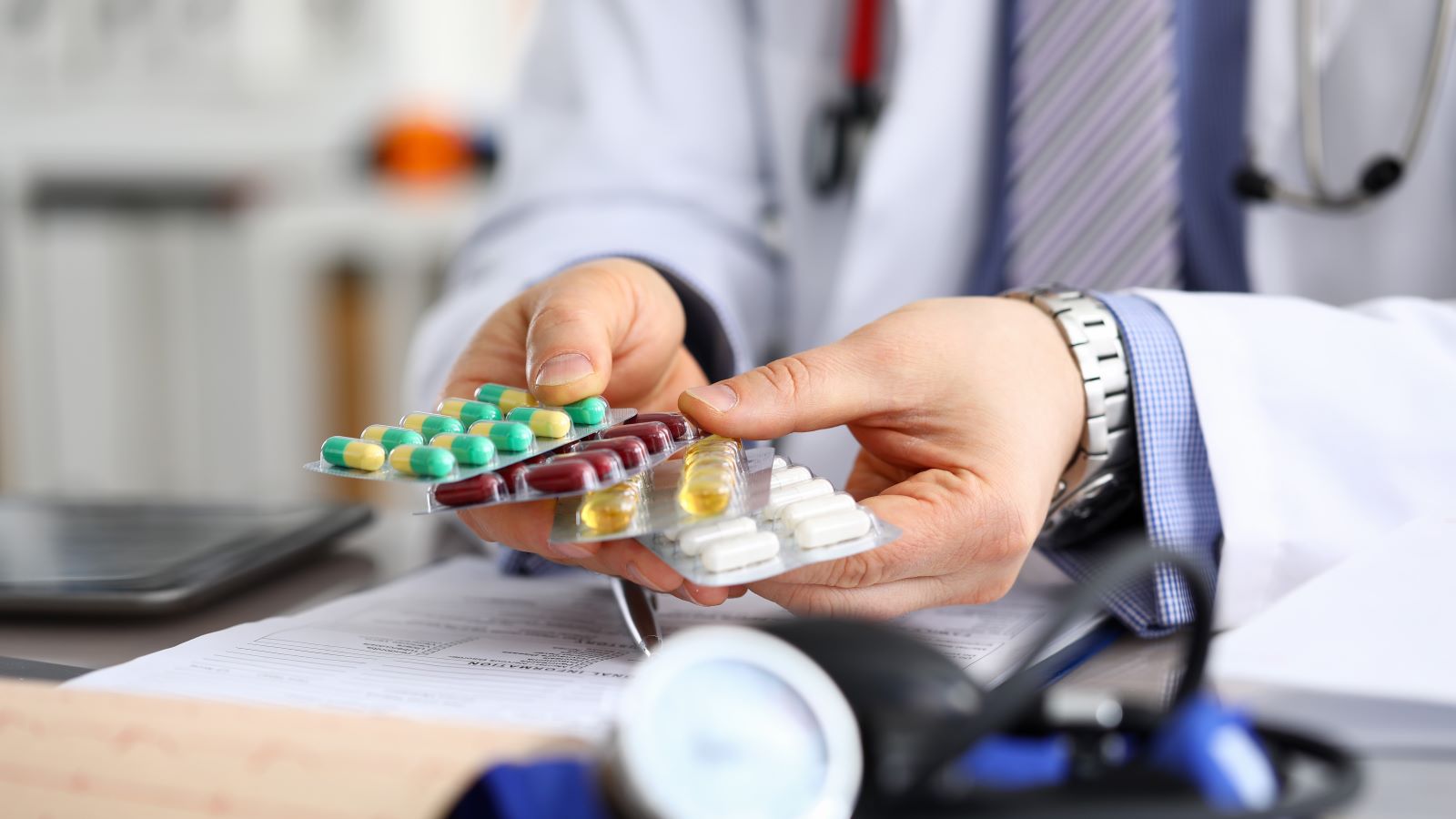From high cholesterol to diabetes, there are a lot of things medicine can help with. But when it comes to constipation, medication is more likely to be the culprit than the solution.
“Constipation related to medications affects everyone differently,” says Tai Ho, MD, a gastroenterologist with Hartford HealthCare. “Some people may have very few or no symptoms at all, while others may be quite sensitive to medications.”
So what medication should you look out for?
3 most common types of medications that can cause constipation.
Constipation has many different causes, so keeping an eye on your bathroom habits can be key for prevention.
“If there’s a direct correlation between starting a medication and experiencing constipation and stopping the medication with resolution of symptoms, we can safely suspect medication as the reason,” says Dr. Ho.
He shares a few medications that may make you constipated:
- Opiates, antidepressants and certain anti-hypertensive medications can slow down the movement of the digestive tract. These medications affect specific receptors and neurotransmitters that control gut movement, often leading to constipation.
- New popular weight loss medications that are GLP1 agonists (e.g., Ozempic®, Wegovy®, Mounjaro®, Zepbound®) can also slow the movement of the digestive tract and cause constipation.
- Iron supplements can put excess iron in the gut microbiome, slowing the digestive tract and causing constipation.
> Related: 9 Common Causes of Constipation
But constipation doesn’t have to be a regular occurrence.
Don’t toss your medicine quite yet – there are plenty of treatments for constipation.
“A high-fiber diet is the best way to maintain regular bowel movements,” says Dr. Ho. “Leafy greens, fruit, vegetable skins, bran, prunes and seed hulls are all great. I also suggest eating two kiwis a day to get things moving.”
Not a kiwi fan? Here are a few other ways to relieve constipation:
- Stay hydrated: Try to drink at least 64 ounces of water daily.
- Exercise: Moving your body moves the gut.
- Fiber supplements: Try psyllium husk, calcium polycarbophil (FiberCon®), methylcellulose or wheat dextrin.
- Gentle laxative: A daily MiraLAX® may help you out.
> Want more health news? Text StartHere to 85209 to sign up for text alerts
It might be uncomfortable, but hold off on making medication changes.
“If you’re on a medication that causes constipation but need to stay on it for any reason, talk to your doctor,” urges Dr. Ho.
Your physician can help you:
- Review the benefits of your current medication.
- Treat constipation if you need to keep taking your medication.
- Discuss weaning down or stopping the medication if it’s no longer effective.
“If you feel a medication is causing constipation that is disruptive to your daily life, speak to your physician first,” says Dr. Ho. “Constipation is a treatable condition, and we have many different available medications that can be helpful.”
If constipation persists, see your gastroenterologist.
If you experience any of the following, it’s time to see your doctor:
- Constipation that causes significant abdominal discomfort or bloating.
- Constipation that isn’t relieved with over-the-counter remedies (e.g., fiber or MiraLAX®) or diet changes.
- Constipation that is associated with poor oral intake, bleeding or weight loss.
“There are many reasons why you might have constipation,” says Dr. Ho. “If you stop the medication and it continues, speak to your doctor about an evaluation for other underlying conditions. We can help.”



